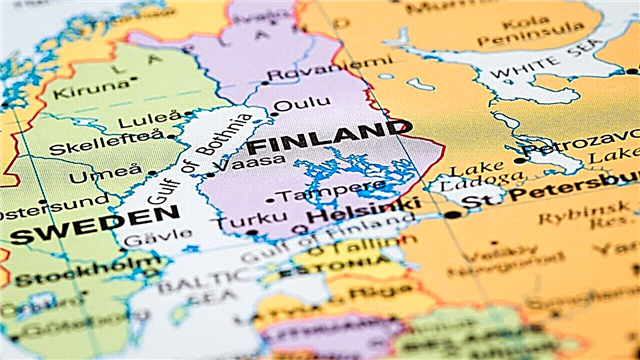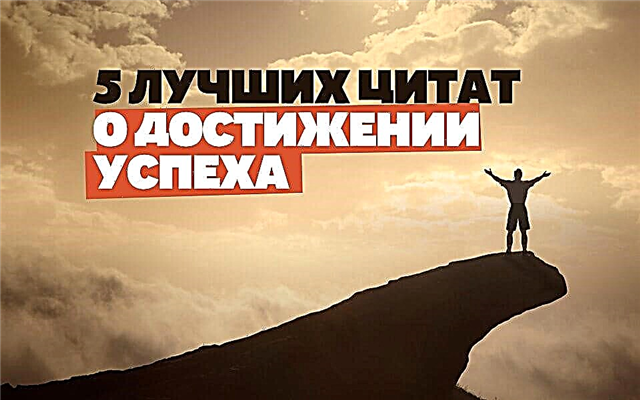Being the largest country in the world in the world and one of the most important from the point of view of economics, culture and politics, Russia has been overgrown with myths and legends for centuries. Some of them arose “from the time of King Peas”, others appeared relatively recently, in the 20th century.
Here are the top 10 myths about Russia and Russians that many foreigners still believe.
It's always cold in Russia
 There are very cold regions in our country. For example, 5 of the 10 coldest cities in the world are located in Russia.
There are very cold regions in our country. For example, 5 of the 10 coldest cities in the world are located in Russia.
However, in most cities it is at least not colder than in Europe. And even warmer. For example, in Sochi, in the coldest month, the temperature does not drop below 6 degrees Celsius, in Makhachkala - below 1.2 degrees, and in Anapa - below 2.4 degrees.
And in the hottest cities of Russia - Volgograd, Astrakhan and Krasnodar - the temperature in the summer rises to 40 degrees Celsius and further more. So the rumors about the eternal Russian cold are greatly exaggerated.
Russians never smile
 This is one of the most enduring myths about Russia among foreigners. There is even a joke that in America, fake smiles are not on the faces of passers-by, but in Russia there is genuine hatred. However, in reality, our people are simply not used to smiling for no reason.
This is one of the most enduring myths about Russia among foreigners. There is even a joke that in America, fake smiles are not on the faces of passers-by, but in Russia there is genuine hatred. However, in reality, our people are simply not used to smiling for no reason.
Some blame this combination of bad weather (at least in winter), a hectic history, a general distrust of outsiders and difficult living conditions for most Russians.
There is another explanation: the Russians consider the person who constantly smiles as someone like a village fool. So if you come to Russia, and passers-by do not smile at you - nothing personal. But if they are smiling, then be sure - you made a favorable impression.
Russia is a very dangerous country, the mafia is everywhere
 Stories about the legendary Russian mafia, which can show the Italian "Cosa Nostre" where the crayfish hibernate, can greatly scare the refined Europeans. But the days of skirmishes in broad daylight and exploding stalls are long gone, and in reality were greatly exaggerated.
Stories about the legendary Russian mafia, which can show the Italian "Cosa Nostre" where the crayfish hibernate, can greatly scare the refined Europeans. But the days of skirmishes in broad daylight and exploding stalls are long gone, and in reality were greatly exaggerated.
Now many former mafiosi spend time not on thinking about villainous plans, but on running a legal business. And the chance to run into a bandit in Russia will be high only if you yourself are engaged in something illegal.
Undoubtedly, there are many criminals in Russian cities, but the same situation is relevant for any city in the world.
According to the Ministry of Internal Affairs, the most common crimes in Russia for the first three months of 2019 are theft (33.7% of cases) and fraud (12.7%).
Russia is the most read country in the world
 Alas, no longer. The Soviet Union could boast of this very flattering title, in which already by 1939 87% of citizens could read and write.
Alas, no longer. The Soviet Union could boast of this very flattering title, in which already by 1939 87% of citizens could read and write.
However, despite the title of the most widely read people in the world, Soviet people were limited in their choice of literature. And the demand for fiction and entertainment literature far exceeded supply.
But in the “blessed” (“dashing”, “black” - as you like) 90s a new book market was formed in the country. Now people have no problem finding the right book for the genre. But they became less read.
According to a study by GfK, the Chinese read more than the Russians (70% of the daily reading audience versus 59%, respectively). Spain closes the top three with 57%.
Russians are rude people
 Judging the entire Russian people by individual and far from the best representatives is wrong. Yes, when choosing to vacation in another country, some Russians behave disgustingly: they are rude, scandalous, drink unknowingly and start fights. Because of them, there is a misconception that at home all Russians behave in a similar way.
Judging the entire Russian people by individual and far from the best representatives is wrong. Yes, when choosing to vacation in another country, some Russians behave disgustingly: they are rude, scandalous, drink unknowingly and start fights. Because of them, there is a misconception that at home all Russians behave in a similar way.
However, for the most part, Russians are very well-educated people, and they are in no way inferior in behavior culture to the British, Germans, Americans, and representatives of other nations.
Disasters and terrorist attacks constantly occur in Russia
 No more than in other countries. Given the vast territory (17,125,191 km²) of the country, it is not surprising that negative events are occurring in one or another point in it.
No more than in other countries. Given the vast territory (17,125,191 km²) of the country, it is not surprising that negative events are occurring in one or another point in it.
According to the Secretary of the Security Council of the Russian Federation, Nikolai Patrushev, in 2018 in Russia one terrorist attack was committed (in Kizlyar, during Shrovetide) and 9 crimes of a terrorist nature.
For comparison: in France last year, there were three terrorist attacks (in Strasbourg, Paris and the city of Treb), and one terrorist attack in the United States. But these states are smaller in area than Russia.
Or take the sad statistics of the fall of airplanes with human casualties, starting from 1945 to 2018. And we see that Russia does not occupy the first place, although it is included in the first three of the “black list”.
There are a lot of police in Russia, and they are always ready to put you in jail. Especially if you say bad or write about Putin.
Russia with its 914,500 people in the Ministry of Internal Affairs ranks third in the world in terms of the number of police officers (after China with its 1.6 million people) and India (1.5 million people). And often the Russian police treat people more gently than in other countries.
For example, in prosperous countries such as Canada, Hong Kong, and France, police are using tear gas against protesters.
In the United States, an attack on a policeman is likely to result in the death or injury of the attacker. According to statistics compiled by The Guardian, in the US police kill more people per day than in other countries - in a few years.
All of the above does not negate the fact that corruption and neglect of their duties are the main troubles of the Russian police, which have long deprived the police of the halo of "defenders of respectable citizens."
But the words that if it’s bad to write about Putin on the Web, then you can go to jail - it's true. Indeed, in 2019, Vladimir Putin signed a law providing for a fine (from 30 thousand to 100 thousand rubles) for insulting the authorities on the Internet. And repeat offenders will be punished with a fine of up to 300 thousand rubles and arrest for up to 15 days.
However, Russia is not alone in such measures. In Italy and France, such offenses are punishable by a fine of 5 thousand euros and 12 thousand euros, respectively.
Russians are racists and homophobes
 Most Russian people do not have racism, and even the recent World Cup was held without incidents related to racism.
Most Russian people do not have racism, and even the recent World Cup was held without incidents related to racism.
However, to say that in Russia there is no racism at all would be a lie. This is largely due to the influx of migrants from the former Soviet republics, and the consequences, such as a deterioration in the criminal situation, and the reluctance of migrants to assimilate into Russian society.
In Russia there is no single attitude to sexual minorities. According to a survey conducted in 2006 by the Public Opinion Foundation, 47% of Russians condemn homosexuals and lesbians. And 40% relate to them without conviction. Another 13% of respondents found it difficult to answer about their attitude to people of non-traditional sexual orientation.
Russians have a bad sense of humor
 In many Western films, Russians are shown by stern people who do not like to laugh and do not understand jokes. Well, films are films, but in real life, Russians like to laugh just like everyone else on Earth.
In many Western films, Russians are shown by stern people who do not like to laugh and do not understand jokes. Well, films are films, but in real life, Russians like to laugh just like everyone else on Earth.
They love to celebrate, have a good time with friends and family, as well as celebrate happy occasions and events in their lives. Of course, the sense of humor in Russia is very different from the sense of humor that you can find in China, the USA or Great Britain.
Russians are very eager to laugh at themselves, at their problems and at the things that make their life uncomfortable. Perhaps Russian humor is not as subtle and sarcastic as British, but it is extremely relevant and urgent. It expresses the effect of surprise and unpredictability.
It is difficult for many foreigners to understand Russian humor, because in it jokes are often a play on words or connected with characters from Soviet films.
Arrived in Russia - get ready to drink a lot
 Vodka, bear, balalaika - these are stable associations with Russia. However, GfK researchers, having conducted a survey from April 2017 to March 2018, found that the most popular drink among Russians is not vodka, but wine. The average Russian purchases wine 7 times a year, the average purchase volume is 1.4 liters.
Vodka, bear, balalaika - these are stable associations with Russia. However, GfK researchers, having conducted a survey from April 2017 to March 2018, found that the most popular drink among Russians is not vodka, but wine. The average Russian purchases wine 7 times a year, the average purchase volume is 1.4 liters.
And according to WHO data for 2018, Russia is not even among the top ten most drinking countries in the world. Moldova leads the list, followed by Lithuania and the Czech Republic, and Germany and Nigeria close the top five.












